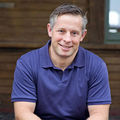The Health and Fitness Advice You are Tired of Hearing
We all know we need to be more active and follow a healthy diet, but exactly how we achieve those goals varies widely. Still, there is no shortage of so-called helpful advice about how to improve our lifestyle habits. Here are two of the most commonly offered pieces of advice, along with more realistic and practical versions that you can actually put into practice.
The Advice: Park farther from the store.
Be honest—have you ever actually done this? Probably not. And you are not alone. I’ve asked countless people over the years if they have ever followed this oft-offered advice and rarely do I get a positive response. This endlessly repeated cliché to park farther away from the store when running errands has a critical flaw. The extra physical activity you get is not enjoyable—who likes a long walk through a parking lot?
A close relative of this advice is to “take the stairs instead of the elevator.” I take the stairs when I can, but because it is typically faster than the elevator.
Since we are no longer hunter-gatherers requiring significant amounts of physical activity for calorie acquisition to ensure survival, physical activity in modern life needs to be primarily done on things we enjoy. Making it more appealing and less like a chore will help to ensure regular participation.
A Better Way: Park as close to the store as possible so you can get in and out quickly. Rather than forcibly adding unappealing extra physical activity to your day, get the chores out of the way as expeditiously as possible so you have time to add some enjoyable forms of incidental physical activity. Be ruthlessly efficient with the “chore” part of your day so you can create space to add in some enjoyable physical activity that is not exercise.
The Advice: Eat less and exercise more.
If only it were that simple. Human physiology is complex, yet we are irresistibly drawn to simple solutions. We love it when things are simple, but life rarely works that way.
The harm in widely accepted platitudes about health is that they lead to the following problem for those who consistently struggle with health: If health is simple and you have difficulty getting it, then there must be something wrong with you. This conclusion is the inevitable result of the following thought process:
- It is simple to be healthy and get in shape. All you have to do is _____________. (Put whatever common advice you frequently hear in that blank.) This leads to the following thought.
- “I am struggling to be fit and healthy and have been for many years. Therefore …”
- “… there is something inherently wrong with me.”
The glib advice to “eat less and exercise more” is shorthand for the energy balance equation, which is also known as “calories in vs. calories out.” The flaw in the equation is that we are physiological and psychological creatures. Champions of the energy balance equation often dismiss concerns with statements like “It’s just physics/chemistry.” As H.L. Mencken said, “There is always an easy solution to every human problem—neat, plausible and wrong.”
Your body is not a physics or chemistry lab. You have thoughts and feelings about what goes in it. A powerful study illustrated just how important it is to consider the influence of psychology on our physiology and how our bodies process calories. Forty-six people were split into two groups and fed one of two milkshakes labeled as “Indulgent” (620 calories) or “Health Conscious” (140 calories). Researchers measured the ghrelin response (a hormone that stimulates hunger) after participants consumed the shake and found that those consuming the indulgent shake had a bigger dip in ghrelin, as you would expect. A week later, the groups were fed the opposite shake from the one they were given initially, and the same results were found with ghrelin measurements post-consumption.
Here’s the catch: All participants were actually fed an identical 380 calorie shake both times. The labels were fake. Thus, the measured different ghrelin responses would be an impossible result if “it’s just chemistry.” Clearly, what we think about what we are eating can influence the body’s response to, and processing of, the food.
A Better Way: Count calories for only a brief period and only if it helps you acquire an understanding of how much you are eating consistently. Long-term, consume higher-quality foods that are meant for your body and eat until you are about 80% full; you will get more accurate signals of satiety along with more nutrients and thus be less likely to overeat.




 by
by 







 by
by